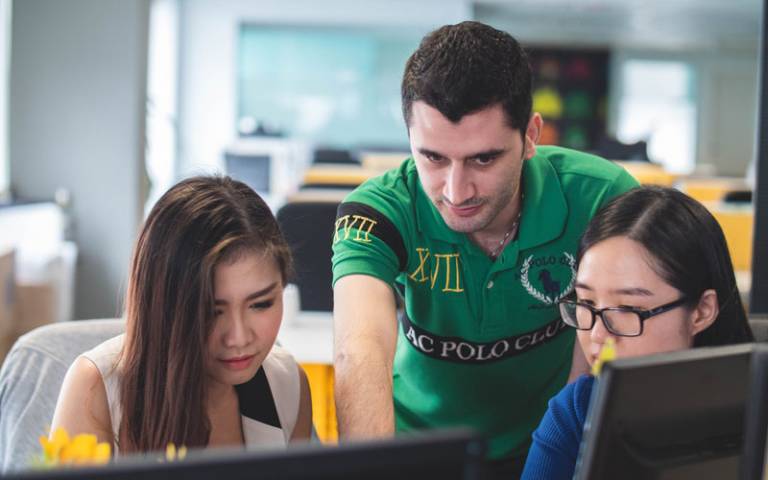IOE academic informs T20 discussion about the future of education
20 May 2021
UCL Institute of Education (IOE) academic Paul Grainger has contributed to the Think 20 (T20) conference on the future of education after Covid.

Think 20 (T20) is the official engagement group of the G20 and is composed by think tanks and research institutions. It serves as the 'idea bank' of the G20 and provides research-based policy recommendations to the G20 Leaders.
The virtual conference discussions focused on ensuring that students recover from the disruptions to schooling that the Covid-19 pandemic has brought. In particular, the Group discussed how to prevent students from financially fragile households being pushed out of the education system, whether digital technologies lead to a new paradigm for future education, and how policies could be designed around this.
Paul Grainger spoke about the enormous potential for digitalisation and the crucial role it played in remote learning during schools’ closures. However, he also mentioned that the pandemic had highlighted the resource limitations of remote learning, for example, space in families’ houses, the number of devices, and the skills required so that users can get the most out of remote learning and working.
Another limitation that has become clear is the limited opportunity for interaction and the difficulty in teaching practical skills. Grainger stated that this is causing a bottleneck in licence to practise occupations, such as cheffing, where the student has to demonstrate a set of skills in order to obtain that qualification. He argues that though technology may support learning, some form of human interaction will remain essential.
Grainger also stressed that it is impossible for vocational colleges to teach unless they collaborate with employers: “What we have to do post-pandemic is break down the siloes where teachers are ‘here’ and employers are ‘there’. If employers want people with the appropriate skills, they’re going to have to collaborate [with colleges] in delivering those skills in local networks… We’re looking at a new paradigm for employment feeding into a new paradigm for education.”
Links
- Q&A with Paul Grainger
- Centre for Post-14 Education and Work
- Department of Education, Practice and Society
Image
Image from Mimi Thian via Unsplash
 Close
Close

